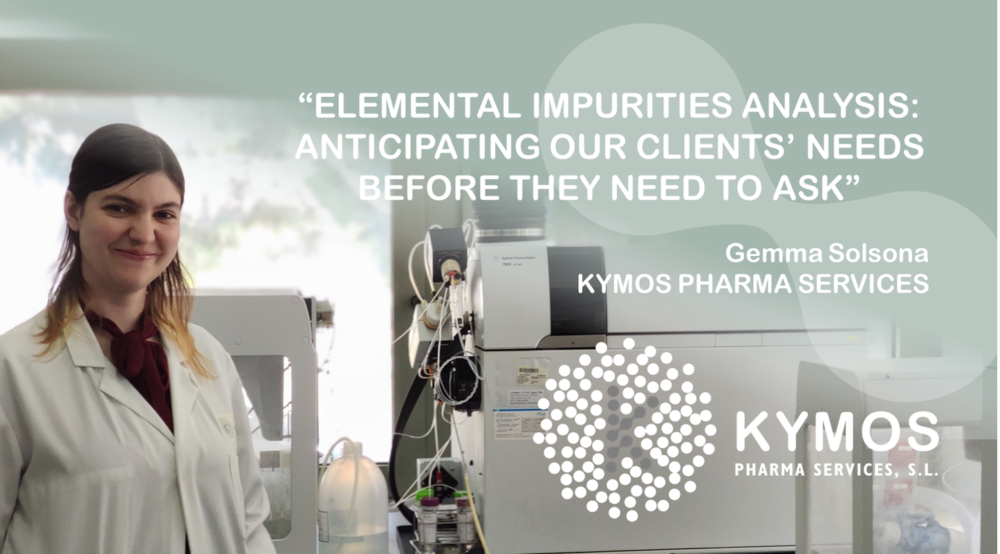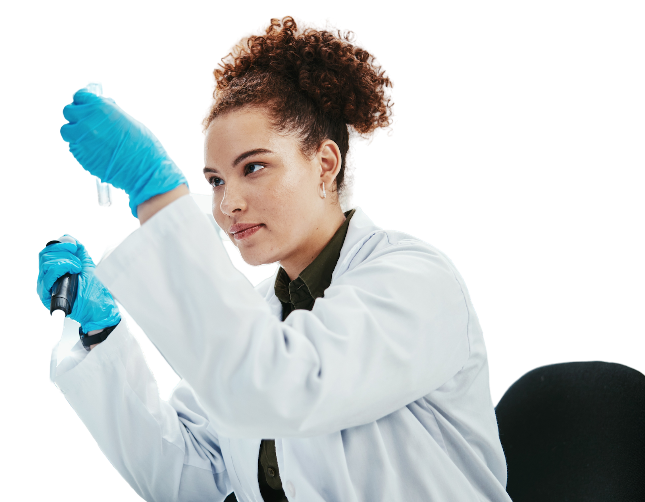
The European Pharmacopoeia implemented the ICH Q3D guideline in June 2017, ruling the need to assess for the presence of potential elemental impurities in all drug products. Now guidelines will expand to also cover products for veterinary use.
We talk to our expert in elemental impurities, Gemma Solsona, as she updates us on the latest developments in the industry. Gemma has almost a decade of experience working in the pharmaceutical industry and leads a department that is historically tied to regulatory changes.
“For the changes to come, the general recommendation is to prepare ahead of time,” she says.
How have KYMOS prepared for this assessment?
During 2017 and 2018 there was an important rise in demand of companies to have their drug products tested, coinciding with the implementation of ICH Q3D guidelines for elemental impurities in pharmaceuticals. Gemma and her team have experience with over 600 different products. They performed extensive analysis with state-of-the-art ion coupled plasma mass spectrometry (ICP-MS), which allows for lower limits of detection and simultaneous multi-elemental screenings, as well as atomic absorption spectrometry (AAS). This wide experience has helped KYMOS build-up a robust elemental impurities department.
“We have developed an internal discipline for elemental impurities screenings to rapidly adapt to the client’s product, resulting in a quick and affordable analysis,” Gemma says.
How can Gemma and her team help?
Gemma’s team are fully prepared to provide solutions for three new challenges:
- In mid-2019 it was decided that the scope of ICH Q3D would be expanded to also include veterinary drugs. While KYMOS’ valuable knowledge was gained analyzing drug products for human use it is entirely transferable to the veterinary medicine sector and therefore the service is already being offered.
- KYMOS also have a validated new service, based on the recently implemented Purified Water compendial method (04/2018:0008) for the control of elemental impurities in routinely used water during the manufacture of the vast majority of products (liquid formulations or otherwise). The fully validated method allows the client to skip the costly and time-consuming validation step, thereby enjoying a more competitive offer.
- KYMOS are developing in-house ICP-MS method to replace colorimetric compendial methods such as Arsenic determination.
“We have state-of-the-art techniques and, following the latest regulations, they allow us to anticipate client’s needs,” Gemma adds.
So, what next for Gemma and her ambitious department?
“This is an enthusiastic department and is always guided by a strong commitment to self-improvement.” Gemma and her team have been working to reducing their lead times: “We are ready to provide a 2-3 week lead time for a screening report and results for quality control purposes between 5 and 10 days.”
The coming years are crucial as Gemma’s team continue to implement full testing methods, while developing new standards to comply with human drugs. With the achievements so far, we have every confidence that Gemma and her team will execute this efficiently and professionally.
You can view more information about KYMOS, elemental impurities general services and purified water or contact us on commercial@kymos.com.

